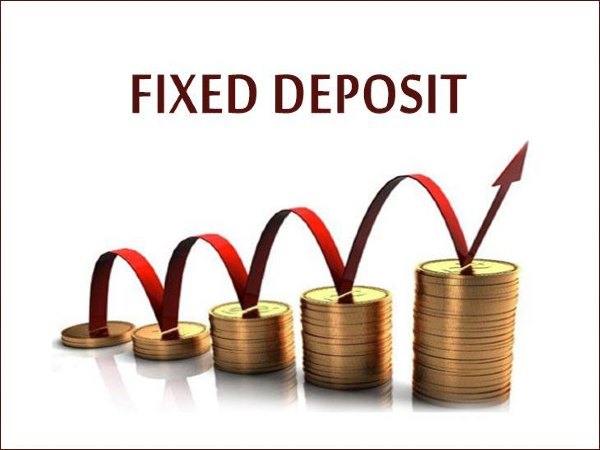Fixed deposits (FDs) have long been regarded as a reliable and secure investment option, offering stability and predictable returns. However, as the financial landscape evolves, the types of fixed deposits available have diversified, catering to the varying needs and preferences of investors. As a financial enthusiast, understanding the different types of FDs is crucial to making informed investment decisions that align with your financial goals and risk appetite. In this article, we’ll delve into the world of fixed deposits, exploring the various types and their unique features.
Traditional Fixed Deposits
The traditional fixed deposit is perhaps the most well-known and widely utilised type. This investment instrument involves depositing a lump sum amount with an issuer, such as a bank or a non-banking financial company (NBFC), for a predetermined period. The principal remains locked in for the agreed tenor, and the investor earns interest at a fixed rate, which is compounded periodically.
The key advantages of traditional fixed deposits lie in their simplicity, safety, and guaranteed returns. They offer a low-risk investment option for individuals seeking a stable source of income or those looking to build an emergency fund. However, it’s essential to compare interest rates across different issuers to ensure you secure the best returns for your investment.
Senior Citizen Fixed Deposits
Many banks and NBFCs offer special fixed deposit schemes tailored for senior citizens. These senior citizen FDs typically provide higher interest rates compared to regular FDs, acknowledging the unique financial needs of retirees and older individuals.
Senior citizen FDs can be an attractive investment option for those aged 60 and above, as they offer an opportunity to enhance their returns while maintaining the safety and stability associated with fixed deposits. However, investors should carefully review the eligibility criteria and terms of these specialised FDs to ensure they qualify and maximise their benefits.
Flexi Fixed Deposits
As the name suggests, flexi fixed deposits offer greater flexibility compared to traditional FDs. With this type of deposit, investors can make multiple deposits and withdrawals during the tenor, allowing for better management of their liquidity needs. Flexi FD typically comes with a minimum amount requirement for the initial deposit and subsequent transactions.
Flexi FDs are particularly appealing to individuals with irregular or fluctuating income streams, as they can deposit surplus funds whenever available and withdraw when necessary, without compromising the overall growth potential of their investment. This flexibility makes Flexi FDs an attractive option for those seeking a balance between liquidity and returns.
Tax-Saving Fixed Deposits
For individuals seeking tax benefits along with steady returns, tax-saving fixed deposits offer a compelling solution. These FDs are eligible for deductions under Section 80C of the Income Tax Act, 1961, allowing investors to reduce their taxable income while growing their wealth simultaneously.
Tax-saving FDs typically have a lock-in period of five years, ensuring long-term commitment and enabling investors to maximise their tax savings. However, it’s essential to carefully evaluate the interest rates and terms offered by different issuers to ensure you make the most of this investment opportunity.
Corporate Fixed Deposits
While FDs are commonly associated with individual investors, corporate entities can also take advantage of these investment instruments. Corporate fixed deposits are designed to cater to the investment needs of businesses, companies, and organisations.
These FDs often come with higher investment limits and customised interest rates based on the amount deposited and the tenor chosen. Corporate FDs can be an effective way for businesses to park their surplus funds and earn returns while maintaining liquidity for operational requirements.
Non-Cumulative and Cumulative Fixed Deposits
Fixed deposits can further be categorised as non-cumulative or cumulative, based on the interest payout structure. Non-cumulative fixed deposits provide periodic interest payouts, typically monthly, quarterly, or annually, allowing investors to utilise the interest income as per their requirements.
On the other hand, cumulative fixed deposits reinvest the accrued interest, compounding it along with the principal amount. This results in a larger maturity value at the end of the tenor, making cumulative FDs an attractive option for long-term wealth creation.
Non-Resident Indian (NRI) FDs
For Non-Resident Indians (NRIs) with financial ties to India, NRI FDs offer a convenient way to invest their overseas earnings. These FDs can be denominated in various foreign currencies, allowing NRIs to hedge against currency fluctuations while earning attractive returns on their investments.
Fixed deposits offer a diverse range of options catering to various investment objectives and preferences. From traditional FDs to flexi deposits, tax-saving instruments, and options for interest payouts, understanding the features and benefits of each type is crucial for making informed investment decisions.
As with any financial decision, it’s essential to conduct thorough research, assess your risk appetite, and align your investment choices with your long-term goals. By exploring the types of fixed deposits and their unique offerings, you can navigate the financial landscape with confidence and ensure that your hard-earned money is working for you in the most optimal way.
